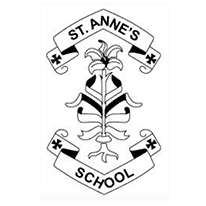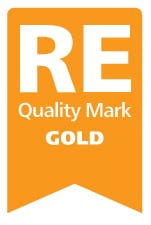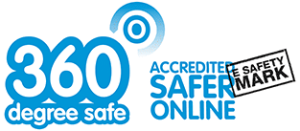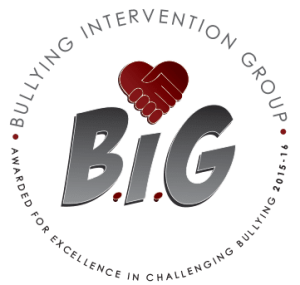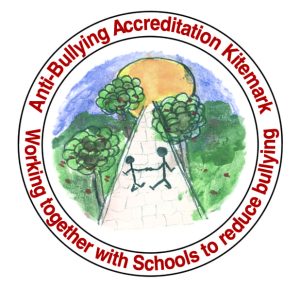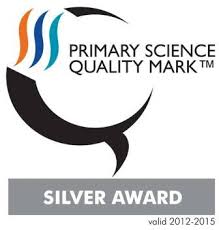How We Support SEND
St Anne’s CofE Primary School prides itself in being very inclusive and will endeavour to support every child regardless of their level of need. All pupils follow the National Curriculum at a level and a pace that is appropriate to their abilities. At times and when it is felt appropriate, modifications to the curriculum may be implemented and for most children and young people in a mainstream school their needs can be met through Quality First Teaching and good classroom practice.
How would my child be assessed and would we be informed?
Early Identification of need
Most children and young people will have their special educational needs met in mainstream schools through good classroom practice. This is called Quality First Teaching.
As a school, we assess all children continuously. We carry out formal assessments at the end of every half term to measure their progress and identify the next steps in their learning. We work in partnership with parents/carers and pupils to build working relationships. If there is an identification of need then a class teacher will meet with parents/carers to complete a ‘Short Note’. The Short Note outlines areas of strength and difficulty and sets agreed outcomes and next steps. We may begin to consider the involvement of relevant, external agencies or use assessment tools, classroom observations and materials to support the early identification of SEN status for a pupil.
Where a pupil is identified as having a special educational need school will follow a graduated approach which takes the form of cycles of “Assess, Plan, Do, Review”.
- Assess a child’s special educational needs
- Plan the provision to meet your child’s aspirations and agreed outcomes
- Do put the provision in place to meet those outcomes
- Review the support and progress
As part of this approach, we will produce an individualised SEN Support Plan that describes the provision that we will make to meet a child’s special educational needs and agreed outcomes. Parents and carers will be fully involved in this process. A small percentage of children and young people with significant learning difficulties might need an assessment that could lead to an Education, Health and Care Plan.
The purpose of an EHC Plan is to make special educational provision to meet the special educational needs of the child or young person, to secure the best possible outcomes for them across education, health and social care and, as they get older, prepare them for adult hood. (Ref CoP p142)
For more detailed information go to the County Durham Local Offer
Details of identification and assessment of pupils with SEN
If your child has SEN, it is important for us to carry out formal assessments to identify their strengths and identify their needs accurately. To do this, we will use a range of methods depending upon their needs. When your child enters our school, their current attainment is assessed to give us a ‘baseline’ from where they will progress.
Teaching Assistants – give support which will focus on their specific difficulties. At St Anne’s, we have experience of supporting children with a wide range of needs. We currently have children with a variety of needs in school including:
- Autistic Spectrum Disorders
- Communication and Interaction difficulties
- Medical conditions
- Speech and language difficulties
- General learning difficulties
- Gross motor and fine motor difficulties (including balance, coordination and handwriting)
- Difficulties with literacy skills (including reading, writing and spelling)
- Difficulties with maths skill
- Dyslexia
Depending upon their needs, other assessments may be needed. These could include:
- Speech Therapy Assessments – which may focus on sound production, language understanding, or other relevant assessments to your child’s needs
- Education Psychology Assessments – which may include memory, understanding, reasoning, logic, and general skills assessments
- The outcomes of all assessments are shared with parents and carers at our termly Open Evenings and in your child’s School Report. If other agencies are invited to work with your child, you will be invited to attend a meeting where the outcomes of these assessments and their next steps will be shared with you.
- Your child’s school achievements may be assessed against the levels expected for children who are working on the National Curriculum (i.e. the same as the majority of other children in their year group), or they may be assessed against other measures for children who are not ready to work on National Curriculum Levels (i.e. the steps before the National Curriculum).
How are resources made available to support children with SEN?
The resources we use to support children with SEN depend upon their needs and they are allocated on an individual basis. Once your child has been identified as SEN, their needs will be assessed and targets and outcomes will be identified. It is the responsibility of the SENCO to ensure that the resources that are required are made available and that staff are aware of their individual needs. We are very flexible in our approach and we constantly monitor and evaluate the effectiveness of our interventions and the provision that we provide.
- We currently employ a Speech and Language therapist, Emily Backes, BSc Hons MRCSLT HPC reg, to work with a number of our children. This has greatly reduced the waiting time families were experiencing for initial speech and language assessments. Following sessions, our staff receive reports and resources so we are able to address the difficulties children experience quickly.
- As part of our staff professional development, all members of staff received training to support children with SEND.
- School-based CPD – systems and procedures, staff audit, staff planning and agreed action points.
- Sensory Specialist Training – making sense of sensory – sensory smart classrooms
- Trauma Informed Approach
- Social Stories
- Lego Therapy
Staff Training: will vary each year depending upon the needs of the children.
Staffing and any Specialist Qualifications/Expertise Mrs A Harrison is our SENCO and has attended recent training:
- New and Returning SENCOs
- SENCO as a Strategic Leader
For further information you can view the Teaching & Learning Policy in the School Policies section of our website. If you would like to discuss your SEND requirements in detail please contact the school to arrange an appointment.
